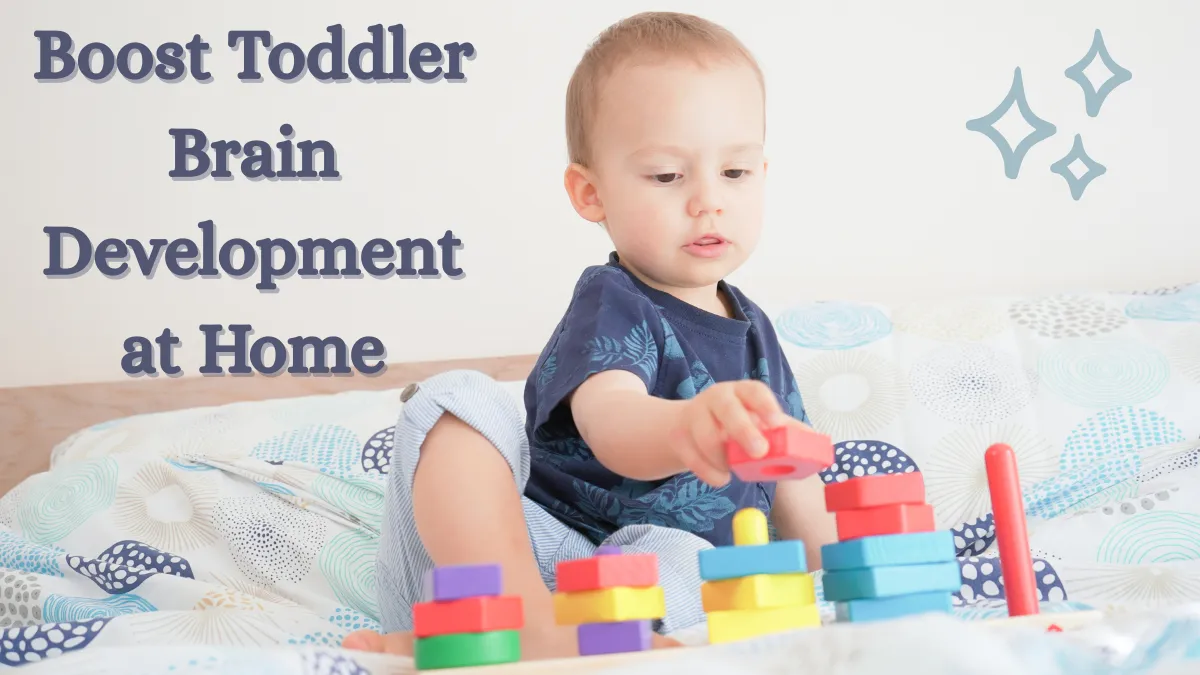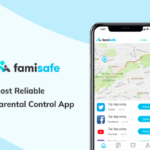Did you know that your toddler’s brain is growing faster now than at any other time in life? In fact, by age 3, a child’s brain has already formed over a thousand trillion connections. These early years are the foundation for how your little one will learn, think, feel, and interact with the world.
Boost Toddler Brain Power at Home: Fun & Pediatrician-Approved Activities for Smarter Kids

The good news? You don’t need fancy gadgets or expensive programs to support this growth. With just a few fun, pediatrician-approved activities at home, you can actively boost toddler brain development, spark curiosity, and build lifelong learning skills—all while bonding and making memories together.
Fun, Proven & Pediatrician-Approved Activities Every Parent Can Do
Want to help your toddler grow smarter, happier, and more curious every day? The best place to start is right at home. Boosting toddler brain development doesn’t need expensive toys or classes—just a few fun, intentional activities backed by pediatricians and child development experts.
In this complete guide, you’ll discover simple, proven ways to enhance toddler cognitive development, build memory, and support emotional growth—all while playing and bonding with your child. Whether you’re a first-time parent or just looking for smarter ways to spend time together, this is the ultimate go-to guide for toddler brain stimulation at home.
🧠 Boost Toddler Brain Development at Home – Expert Activity Table
| Home Activity | Skill Boosted | Why It Works | Best Age Range |
|---|---|---|---|
| Interactive Reading (Story Time) 📚 | Language, attention, emotional bonding | Builds vocabulary, activates imagination, improves focus | 12 months – 4 yrs |
| Sensory Bins (with safe materials) 🌾 | Touch, texture recognition, cause-effect | Stimulates neural pathways through sensory play | 1 – 3 yrs |
| Sing-Along Songs & Finger Rhymes 🎶 | Auditory memory, rhythm, speech | Reinforces memory, sound recognition, and early language | 12 months+ |
| Matching & Sorting Games 🔴🔷 | Logic, pattern recognition, attention | Strengthens cognitive connections and visual discrimination | 18 months – 3 yrs |
| Pretend Play (Role Play Games) 👨🍳 | Imagination, empathy, decision-making | Helps develop symbolic thinking and problem-solving skills | 2 – 4 yrs |
| DIY Obstacle Course at Home 🏃♂️ | Gross motor skills, coordination | Activates movement + mental planning; encourages physical-brain integration | 2 – 4 yrs |
| Flashcard Learning (animals, colors) 🐘🎨 | Vocabulary, categorization | Repetition builds strong memory recall and word association | 18 months+ |
| Art and Crayon Scribbling 🖍️ | Creativity, fine motor, color recognition | Promotes self-expression, hand-eye coordination, and sensory feedback | 18 months – 4 yrs |
| Puzzles (3–8 large pieces) 🧩 | Problem-solving, spatial awareness | Encourages analytical thinking and shape-matching skills | 1.5 – 3.5 yrs |
| Naming Emotions with Face Cards 😊😠 | Emotional awareness, social skills | Helps toddlers identify and manage feelings | 2 – 4 yrs |
| Memory Tray Game 🧠 | Visual memory, observation | Sharpens recall through fun mental challenges | 2 – 4 yrs |
| Cooking with Parents (Simple Tasks) 🍌🥄 | Sequencing, sensory input, motor coordination | Builds independence and links motor movement with sensory and verbal skills | 2.5 – 4 yrs |
| Dance & Freeze Games 🎵❄️ | Rhythm, auditory cues, impulse control | Enhances listening skills and self-regulation through playful movement | 1.5 – 3.5 yrs |
| Simple Chores (with guidance) 🧺 | Executive function, responsibility | Encourages mental planning, sequencing, and reward-based learning | 2 – 4 yrs |
| Bedtime Story + Lullaby Routine 🌙🎶 | Memory, emotional security, patterning | Combines relaxation with rhythmic language input to aid overnight brain growth | 1 – 4 yrs |
-
Repeat activities your child enjoys—repetition strengthens connections.
-
Narrate your actions—talking out loud builds brain and vocabulary.
-
Keep sessions short and joyful—attention span grows slowly at this stage.
-
Combine physical + mental play—they work best together for brain growth.
Disclaimer: This table is meant for informational purposes only. All activities are based on pediatric research and early childhood education principles. However, every child develops at their own pace. Please consult with your pediatrician or a child development expert if you have specific concerns about your toddler’s milestones or learning progress.
Why Early Brain Development Matters
Understanding the Foundation of Your Toddler’s Future Learning
By age 3, your toddler’s brain has developed more than 80% of its adult size. That means every interaction, experience, and activity shapes how they think, feel, and grow. Early brain development isn’t just about academic success—it’s about forming healthy relationships, developing emotional intelligence, and adapting to the world.
Key Fact: Toddlers build over 1 million new neural connections per second when engaged in enriching activities!
That’s why early stimulation through pediatrician-approved toddler activities is critical. Your daily actions—like singing, talking, or stacking blocks—can significantly boost toddler mental growth.
Daily Routines That Boost Toddler Brain Power
Tiny Tweaks in Daily Life for Big Brain Wins
You don’t need fancy programs to support toddler intelligence building. Start by enriching your everyday routines:
1. Talking Through Tasks
- Describe what you’re doing during mealtime, bath time, or walks.
- Use rich, descriptive language (“The banana is soft and yellow.”)
2. Create Predictable Routines
- Consistency builds security and improves memory.
- Say things like “First we brush teeth, then we read a story.”
3. Bedtime Story Ritual
- Reading daily supports vocabulary, empathy, and memory.
- Let them choose the book. Pause to ask questions: “What do you think will happen next?”
These small habits are powerful home activities for toddler brain development—and cost nothing but your time and attention.
Language-Rich Activities for Brain Growth
How Talking and Listening Supercharge Brain Connections
Language is the #1 tool to boost toddler brain development. The more words they hear, the more pathways their brain builds. Try these:
1. Name Everything
- Label emotions, objects, actions: “You’re feeling excited!”
- Narrate their play: “You’re building a tall tower with red blocks.”
2. Sing All Day Long
- Songs introduce rhythm, patterns, and memory.
- Try fingerplay songs like “Itsy Bitsy Spider.”
3. Let Them Finish Sentences
- Pause while reading or talking.
- “The cow says…?” Let them answer. This boosts recall and attention.
These simple toddler learning activities also support emotional regulation and social skills.
Best Brain Development Toys for Toddlers
Pediatrician-Approved Toys That Encourage Smart Play
Not all toys are created equal. The best brain development toys for toddlers are simple, open-ended, and encourage creativity.
1. Stacking Toys & Blocks
- Boosts motor skills, spatial awareness, and math readiness.
2. Shape Sorters & Puzzles
- Builds problem-solving, focus, and fine motor coordination.
3. Art Supplies (Crayons, Playdough, Stickers)
- Supports imagination, hand-eye coordination, and early writing skills.
4. Pretend Play Sets (Kitchen, Animals, Dolls)
- Encourages storytelling, empathy, and role-playing.
Tip: Rotate toys weekly to keep interest fresh and attention strong!
Sensory Activities for Brain Development
Simple Ways to Activate All Five Senses
Toddlers learn by touching, tasting, smelling, hearing, and seeing. That’s why sensory activities for brain development are essential:
1. Nature Bin
- Fill a tub with leaves, rocks, flowers. Let them explore.
2. Water Play
- Add cups, spoons, ice cubes to a water tub.
- Builds cause-effect thinking and fine motor skills.
3. DIY Sensory Bags
- Fill zip bags with gel, beads, or pom-poms.
- Safe and mess-free exploration!
Repeating sensory experiences helps boost toddler memory at home and strengthens sensory integration.
Creative Play Ideas to Build Intelligence
Unstructured Play That Leads to Structured Thinking
Imagination is intelligence in action. When you encourage creative play for toddlers, you help them form abstract thoughts, build stories, and solve problems.
1. Dress-Up Time
- Old clothes, hats, or scarves turn them into anyone they imagine!
2. Build a Fort
- Let them use pillows and blankets. This builds planning skills and teamwork.
3. Puppet Shows
- Use socks or paper puppets. Let them create stories and characters.
Encourage autonomy. Say: “What story will your bear tell today?” Not only is this fun—it’s one of the most effective brain exercises for toddlers.
Brain-Boosting Games for Toddlers
Playful Ways to Sharpen Thinking and Focus
Turn fun into learning with these brain-boosting games for toddlers:
1. “I Spy”
- Sharpens observation, vocabulary, and memory.
2. Memory Matching
- Use cards or objects. Turn over and match pairs.
3. Animal Walk Races
- Bear crawl, hop like a frog, tiptoe like a cat. Builds coordination and body awareness.
4. Sorting by Color or Size
- Use socks, blocks, or utensils. Teaches classification and early math skills.
These cognitive boosting activities for kids keep their brains alert while their bodies stay active.
Outdoor Activities to Sharpen Thinking Skills
Nature + Movement = Smart, Happy Toddlers
Getting outside is one of the best things you can do for toddler brain stimulation at home.
1. Scavenger Hunt
- “Find something round. Something green.” Builds memory, shape recognition.
2. Bug Watching
- Observe insects with a magnifying glass. Teaches focus and curiosity.
3. Chalk Drawing
- Let them draw shapes, letters, or faces. Encourages creativity and motor skills.
Vitamin D, fresh air, and open-ended play are all part of toddler mental growth ideas that don’t require screens or spending.
Nutrition Tips for Early Brain Development
Feed Their Body Right, Fuel Their Mind Bright
What your toddler eats directly affects how their brain grows. Try this brain development hacks for parents:
Best Brain Foods
- Eggs – High in choline for memory
- Avocados – Healthy fats for brain cells
- Blueberries – Antioxidants protect growing brains
- Leafy greens – Support focus and alertness
- Yogurt – Probiotics for gut-brain health
Hydration Hack: A well-hydrated brain functions better. Offer water often!
Avoid too much sugar or processed food. Their tiny bodies and developing brains need real nutrients.
Conclusion: Your Home Is the Best Classroom
Everyday moments can spark lifetime learning.
You don’t need to be perfect, or have Pinterest-worthy ideas. Just be present, playful, and intentional. From stacking cups to singing silly songs, you now know how to improve toddler brain development in easy, joyful ways.
Celebrate every question, every giggle, every “aha” moment—because they all matter.
Must-Know FAQs on Toddler Brain Development
1. What age is most important for toddler brain development?
Ages 1–3 are most critical. This is when over 80% of the brain is formed.
2. How many hours should toddlers play each day?
At least 3–5 hours of active, hands-on play daily supports optimal cognitive growth.
3. Are screen-time learning apps helpful?
Minimal screen time is fine, but real-life interaction and physical play are far better for brain growth.
4. How can I tell if my toddler is developing normally?
Watch for milestones like babbling, walking, naming things, or pretend play. Ask your pediatrician if unsure.
5. What are signs of strong toddler brain development?
Curiosity, focus, problem-solving, empathy, and language growth are key signs.
6. Can music help brain development?
Yes! Singing and rhythm support memory, language, and emotional bonding.
7. Do educational toys really work?
Yes, if used interactively. Passive use won’t help—but guided, hands-on play can make a big impact.
8. Is boredom bad for toddlers?
Not at all! Boredom can actually spark creativity and independence.







